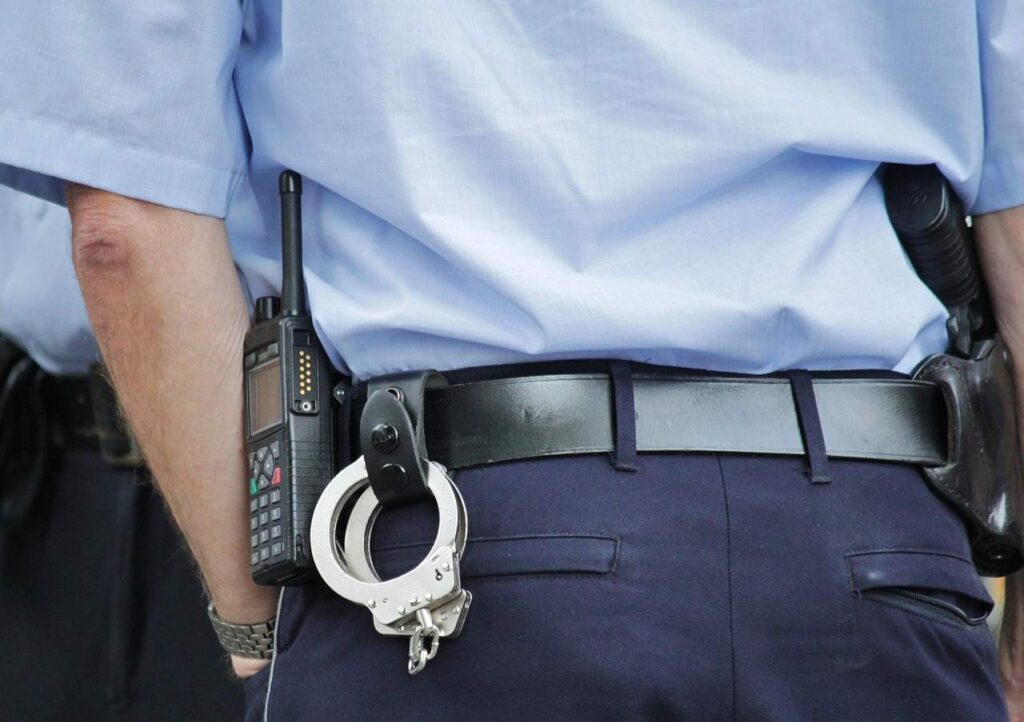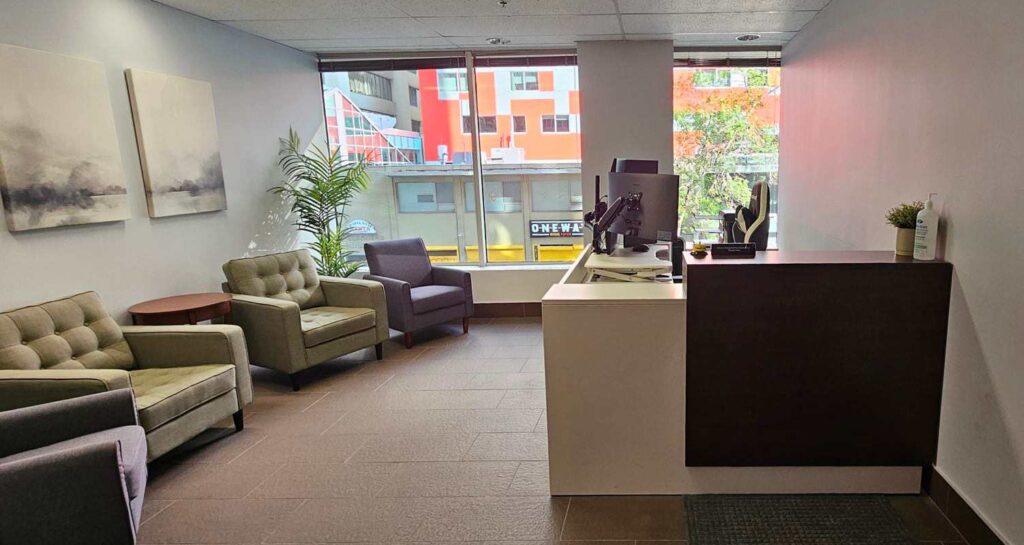Understanding Dual Impairment DUI Charges in Calgary
In Calgary, dual impairment refers to situations where a driver is accused of being under the influence of both alcohol and drugs at the same time. Under section 320.14 of Canada’s Criminal Code, it is a criminal offence to operate a motor vehicle while impaired by alcohol, a drug, or a combination of both. These cases are particularly complex because prosecutors must prove that both substances contributed to the driver’s impairment.
How Calgary Police Investigate Dual Impairment Cases
The Calgary Police Service (CPS) follows a strict protocol when investigating suspected dual impairment cases. If an officer suspects alcohol consumption, they typically begin with a roadside Approved Screening Device (ASD) test. If drug impairment is also suspected, officers may involve a Drug Recognition Evaluator (DRE) or request a Standardized Field Sobriety Test (SFST).
When both alcohol and drugs are believed to be factors, the process can involve:
- Breath tests at the station using an Intoxilyzer to confirm Blood Alcohol Concentration (BAC).
- Blood or urine samples to detect the presence of controlled substances such as cannabis, opioids, or prescription medication.
- Expert testimony from toxicologists to show how the combination of substances may have affected driving ability.
Alcohol-Only vs. Drug-Only vs. Combined Impairment Charges
While alcohol-only DUIs are generally based on a BAC of 80 mg or more per 100 mL of blood, drug-only DUIs require proof that a substance was present above the legal limit (for example, THC over 2 ng/mL). In combined impairment cases, prosecutors don’t just rely on numeric thresholds—they must prove that the driver’s ability to operate a vehicle was impaired by the interaction of both substances. This often leads to more technical defences, as lawyers can challenge whether impairment was due to one substance or both.
Alberta’s Immediate Roadside Sanctions (IRS) in Dual Cases
Alberta’s Immediate Roadside Sanctions (IRS) Program applies to drivers suspected of alcohol or drug impairment, even before criminal charges are laid. In dual impairment cases, a driver may face:
- Immediate licence suspension for 90 days.
- Vehicle seizure for 30 days.
- Mandatory participation in the Ignition Interlock Program if criminal charges are pursued.
Because IRS penalties take effect right away, Calgary defence lawyers typically act quickly to review disclosure, challenge the evidence, and request a review hearing if procedural errors occurred.
How Calgary Police Test for Alcohol and Drugs

When Calgary Police Service (CPS) officers suspect a driver is impaired by both alcohol and drugs, they use a multi-step process to collect reliable evidence that can stand up in court. Each stage is time-sensitive and must comply with the Canadian Charter of Rights and Freedoms to ensure the evidence is admissible.
Roadside Approved Screening Devices (ASDs)
The first step in most investigations is the roadside Approved Screening Device (ASD). CPS officers use handheld breathalyzers to quickly determine whether a driver’s Blood Alcohol Concentration (BAC) is above the legal threshold. A “fail” result on an ASD allows police to make a breath demand and transport the driver to a police station for a more accurate Intoxilyzer test.
Drug Recognition Evaluation (DRE) and SFST
If drugs are suspected in addition to alcohol, a Drug Recognition Evaluator (DRE) may be called in. DRE officers are specially trained to evaluate physical signs of drug impairment, including:
- Pupil size and reaction to light
- Blood pressure, pulse, and body temperature
- Balance, coordination, and divided-attention tasks
In some cases, CPS will also administer Standardized Field Sobriety Tests (SFST), which include the horizontal gaze nystagmus test, walk-and-turn, and one-leg stand.
Blood Sample Collection Procedures
For dual impairment cases, blood samples are often the most critical piece of evidence. A qualified medical professional collects the sample under controlled conditions, following Canada’s strict evidentiary rules.
Timelines and Evidence Integrity
Under section 320.28 of the Criminal Code, police must follow strict timelines for evidence collection, including obtaining breath or blood samples within two hours of driving whenever possible. Failing to meet these deadlines, or breaking the chain of custody for samples, can give defence lawyers strong grounds to challenge the admissibility of the evidence in court.
Legal Penalties for Combined Alcohol and Drug Impairment
Being convicted of a dual impairment offence in Calgary carries serious legal, financial, and personal consequences. Because these cases involve both alcohol and drugs, courts often view them as more severe than single-substance DUIs, which can lead to harsher penalties.
Mandatory Minimum Fines and Licence Suspensions
Under section 320.19 of Canada’s Criminal Code, a first conviction for impaired driving carries a mandatory minimum fine of $1,000. In dual impairment cases, judges may impose higher fines to reflect the increased danger posed by combining substances. Drivers will also face an automatic one-year licence suspension and will typically be required to complete Alberta’s Ignition Interlock Program before regaining full driving privileges.
Additional Penalties for Dual Impairment
Because both alcohol and drugs contributed to the offence, the court may consider aggravating factors that justify stiffer penalties, such as:
- Longer driving prohibitions (up to several years for repeat offenders)
- Mandatory participation in rehabilitation programs addressing substance use
- Higher fines or jail sentences, particularly if there was a collision, injury, or high BAC level
Effects on Alberta Driving Privileges and Insurance
Beyond the court-ordered suspension, Alberta’s Immediate Roadside Sanctions (IRS) program can impose administrative penalties immediately after the arrest, including:
- A 90-day immediate licence suspension
- A 30-day vehicle seizure
- Mandatory education courses under the Planning Ahead or IMPACT programs
Insurance rates also increase dramatically following a DUI conviction. Some Calgary drivers find themselves placed in high-risk insurance pools, which can double or triple annual premiums.
Criminal Record and Long-Term Impact
A dual impairment conviction results in a criminal record, which can significantly affect a person’s future. This record may:
- Restrict international travel, particularly to the United States, where a DUI is considered a serious offence
- Limit employment opportunities, especially for jobs requiring driving, professional licensing, or security clearance
- Create lasting stigma that can affect housing, volunteer work, and community standing
Role of Expert Evidence in Dual Impairment Cases
Expert evidence plays a critical role in defending dual impairment cases in Calgary because these charges involve the complex interaction of alcohol and drugs in the human body. A skilled defence lawyer often relies on toxicologists, medical specialists, and forensic experts to challenge the prosecution’s version of events and raise reasonable doubt.
Explaining How Substances Interact in the Body
Toxicology experts can explain to the court how alcohol and drugs interact pharmacologically and physiologically. For example, alcohol may amplify the sedative effects of cannabis or prescription medication, but in some cases, one substance may offset or mask the effects of the other.
Demonstrating Medical or Prescription Medication Effects
Some drivers may have legitimate prescriptions that affect their test results or cause side effects similar to impairment. Medical experts can provide context on:
- The therapeutic levels of prescribed medications versus levels that indicate abuse
- Conditions like diabetes, neurological disorders, or anxiety that can mimic impairment signs
- Why certain medications may lead to false positives in urine or blood tests
This testimony helps show that the observed behaviour or test results were not necessarily caused by illegal impairment.
Highlighting Gaps in CPS Investigation or Lab Analysis
Expert witnesses can also scrutinize the Calgary Police Service’s investigation and laboratory procedures. They may point out:
- Improperly calibrated equipment or expired testing kits
- Chain of custody issues that raise doubt about sample integrity
- Delays beyond the two-hour legal window that affect the reliability of blood alcohol and drug concentration results
When such weaknesses are exposed, a judge may exclude evidence under the Canadian Charter of Rights and Freedoms, sometimes leading to a dismissal or reduction of charges.
What to Do If You’re Charged with Dual Impairment in Calgary

Being charged with a dual impairment offence can be stressful and overwhelming, but taking the right steps early can make a significant difference in the outcome of your case.
Immediate Steps After the Charge
If you are stopped and charged, it is crucial to comply with police instructions to avoid additional charges such as obstruction. As soon as possible, you should:
- Request full disclosure of the evidence, including ASD results, Intoxilyzer records, SFST notes, and lab reports.
- Document everything you remember about the traffic stop, including timelines, officer behaviour, and any statements made.
- Contact a Calgary impaired driving lawyer immediately to receive guidance before your first court appearance.
Acting Quickly to Preserve Evidence
Time is critical in dual impairment cases. Acting quickly allows your lawyer to:
- File necessary Charter applications if your rights were violated.
- Obtain surveillance footage or witness statements before they are lost.
- Ensure that all testing equipment records and officer training certifications are preserved for review.
The sooner you involve legal counsel, the stronger your defence strategy can be.
Book a Consultation with a Calgary DUI Lawyer
If you have been charged with combined alcohol and drug impairment, do not wait. Book a consultation with an experienced Calgary DUI defence lawyer today to review your case, explore legal defences, and protect your driving privileges.



